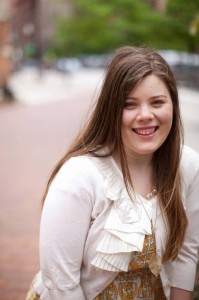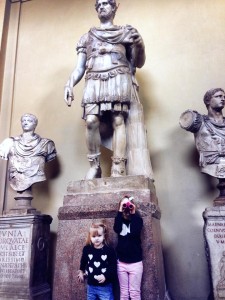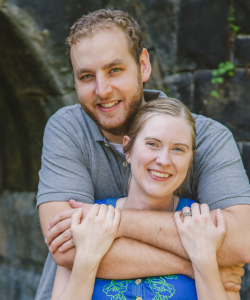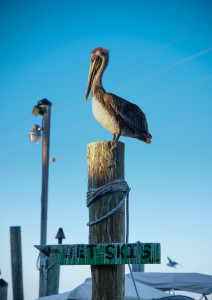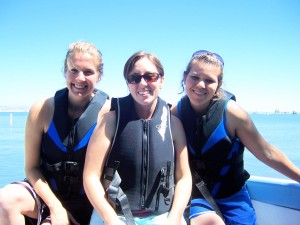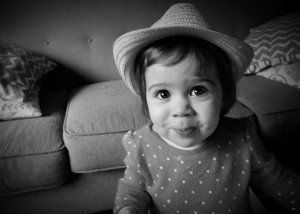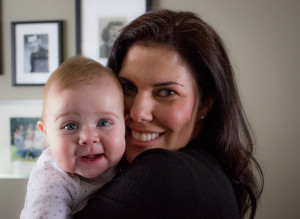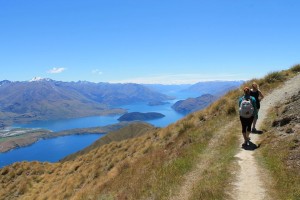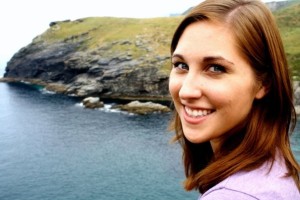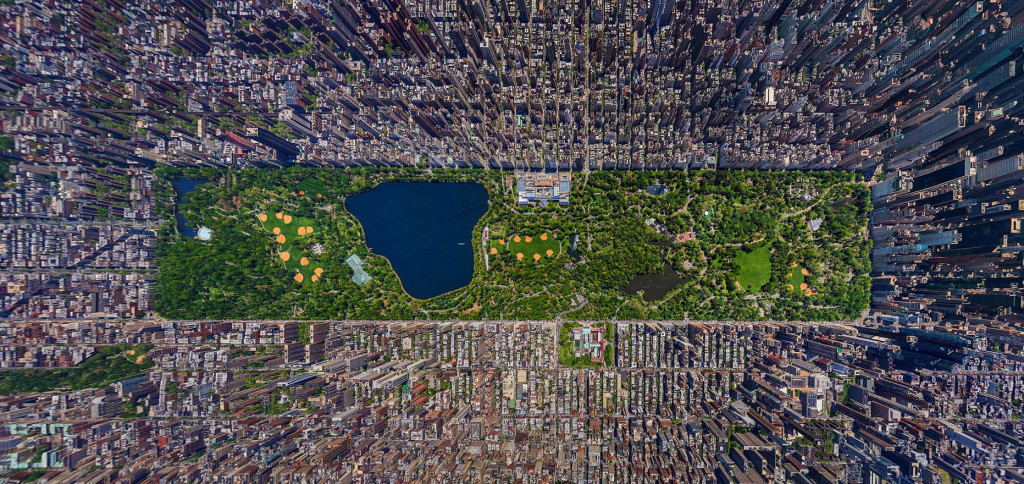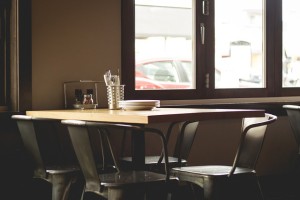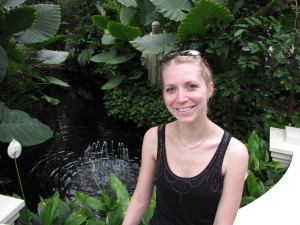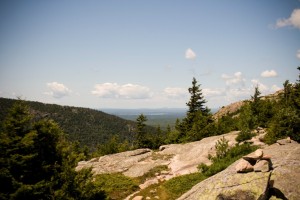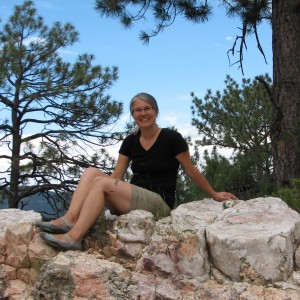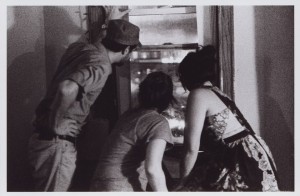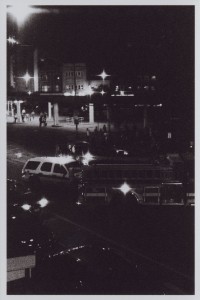The sky is spitting at me as I start making my way across the Birmingham to the South Side. Others may take offense at such rudeness from above, but I am not overly worried about it. Black clouds are rolling in from the west and it appears that I am on the brink of an odd February rainstorm.
I continue my brisk stride down the fading bike lane. It was only striped in November, but its disappearing lines assume an older age. It reminds me of a relationship that is exciting while new, but gets neglected after an initial flurry of attention. Does anyone build anything to last anymore?
A car zooms past at an unnecessary speed. Thank goodness for these bike lanes…why do people drive like idiots? I realize that I am moving quite fast myself (for walking of course) and that a small sense of indignation has risen into my chest. I may not be in a vehicle, but I still get caught up in the rush of morning traffic. I slow my pace only a little: part of me wants to get caught in the moment and in the storm, though part of me only wishes to get to work and stay dry.
I cautiously traverse the on-ramp and hurdle the barrier guarding the sidewalk. My feet hit the other side and continue their dutiful march towards the office. I breathe a bit easier having a concrete wall between me and the traffic and lose myself in my thoughts.
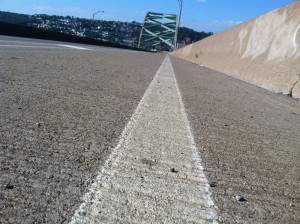 When crossing a bridge, I am most often merely trying to get from point A to point B. When I take a slower mode of transportation (my feet, for example, or by bike), the line between the destinations, the journey, becomes more important and focused.
When crossing a bridge, I am most often merely trying to get from point A to point B. When I take a slower mode of transportation (my feet, for example, or by bike), the line between the destinations, the journey, becomes more important and focused.
In contrast, when I cross a bridge with a car or a bus, am I really bridge crossing, or is it my vehicle transporting me from one point to another? Do I hear my feet hitting the pavement below? Do I feel the raindrops and wind stinging my face? Do I really see my surroundings when a window is framing my view, the world passing by in a blur?
The difference between bridge crossing and bridge crossing is in the experience of the moment. Actually, it is a state of mind:
When I am in a hurry to get to work in the morning, even though I am walking, I am not really crossing the bridge: I am just trying to get to work.
At the midway point of the bridge, the spitting turns into a light sprinkle and breaks my reverie. I look over the railing to the river below. The Mon is usually pretty muddy, but I find that this is even more the case today. It had been calmly flowing in the weeks before: Now it seems to have snapped. It has been holding back for a long time and is just now letting go.
It is a hard process: to let go. The waters seem to dig their heels into the bottom of the riverbed in protest and make everything cloudy. I remind myself that it is a cycle that nature – and a human heart – goes through: The water rises and falls in its own time.
The sprinkle is growing steadier as I descend the stairs from the bridge walkway. My mind turns to schedules and coffee and nine-to-five matters. I check my watch: 8:55. I quicken my pace.
I see other people on their way to our huge renovated warehouse of an office building. They come from all directions, pulled somewhat unwillingly towards the same point as if by some unseen magnetic beacon. Most of their faces have the same blank look of Monday.
The rain is really starting to come down now. I alight the stairs towards the employee entrance and seek cover from the rain. I see a flash light up the sky and hear the subsequent crack of thunder. I pause, hoping to at least watch the storm for a little longer, but someone is behind me, so I enter the building.
I remember so vividly these ten minutes of my day, crossing the bridge, while the rest goes by in a forgotten blur…
“Why can’t my whole life be like crossing a bridge?” I ask myself as I punch the elevator button. I breathe deep, step into the elevator and take note of the strength of my still beating heart. I silently pray gratitude as the doors close in front of me.
* * * * *
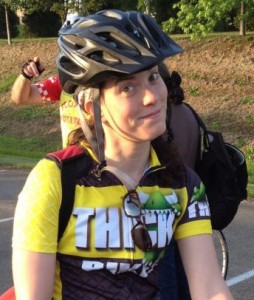 “Bridge Crossing” is by Tricia Chicka. Tricia is a multi-media artist, massage therapist, cycling advocate, outdoors enthusiast and theatre lover from the city of bridges: Pittsburgh, PA. When she is not walking across bridges, she is more often than not cycling, bussing, or (begrudgingly) driving over them. She loves the power of words and sometimes pretends to know how to string them together in meaningful ways. You can find other musings posted on The Chicka Blog (www.pachickster.blogspot.com).
“Bridge Crossing” is by Tricia Chicka. Tricia is a multi-media artist, massage therapist, cycling advocate, outdoors enthusiast and theatre lover from the city of bridges: Pittsburgh, PA. When she is not walking across bridges, she is more often than not cycling, bussing, or (begrudgingly) driving over them. She loves the power of words and sometimes pretends to know how to string them together in meaningful ways. You can find other musings posted on The Chicka Blog (www.pachickster.blogspot.com).
 nothing to lose. No job, no apartment, no relationship to leave behind. So when I was offered a teaching job in western Guatemala, I said “yes”. I imagined myself being free and independent, ready to take on the world. But when I found myself in a place where my primary dating requirement was “guy who speaks English”, the internet became my connection to the outside world.
nothing to lose. No job, no apartment, no relationship to leave behind. So when I was offered a teaching job in western Guatemala, I said “yes”. I imagined myself being free and independent, ready to take on the world. But when I found myself in a place where my primary dating requirement was “guy who speaks English”, the internet became my connection to the outside world.